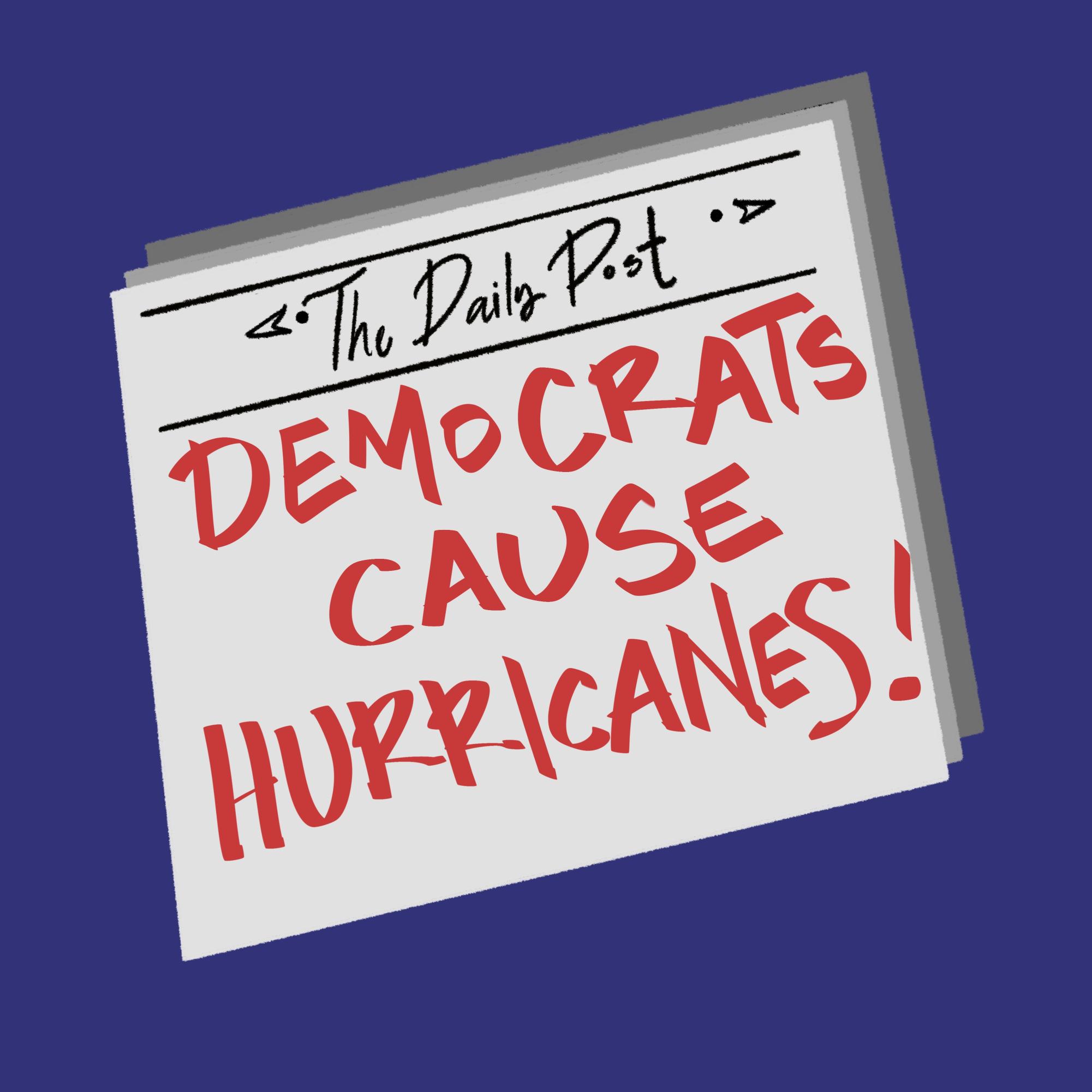Opinion | The immorality of fake news


Several weeks ago, among the wreckage of hurricanes Helene and Milton, was a second kind of destruction. This destruction was none other than the weaponization of misinformation, which contributed to many believing false claims about the natural disasters — including ones that went so far as to say the hurricanes were sent upon Florida by the Democratic Party as a means to swing the election.
This conspiracy theory was touted by none other than Rep. Marjorie Taylor Greene, R-Ga., who seemingly claimed that Democrats could control the weather in a tweet on Oct. 3 and reinforced that claim in an Instagram post on Oct. 7. This action — just like most kinds of fake news — sought to invoke strong emotions from its intended audience. Used primarily in politics, fake news leverages the emotions of those it reaches, leading many to base their opinions on completely inaccurate information.
Considering that our government is a democracy and people draw upon their opinions and knowledge to vote for their desired candidate, knowingly publishing fake news is entirely immoral. It’s a new kind of taking advantage — robbing someone blind of their right to informed decision making.
Fake news has existed in the media since at least 1835 and has appeared across media platforms countless times since. Though it has a significant history, misinformation has grown specifically throughout the past decade with the growing polarization of politics and the increasing role of media in our society substantially contributing to its popularity. A recent instance of fake news is Elon Musk using his X profile to promote falsehoods on topics like immigration and voting.
One of the primary reasons why misinformation has held a chokehold on the media, especially in the political field, is because it serves the purpose of putting people in power and keeping them there. The publishers of fake news understand that individuals who want to believe things will believe them, and they utilize this knowledge to attain their own goals. This is what I find to be the immoral aspect of fake news — some publishers exploit the naivety or lack of awareness of their readers and harness it to push their own personal agendas.
However, while those who publish this misinformation are certainly the primary issue at hand, the decline of media literacy is also to blame for the prevalence of fake news. A recent study shows that citizens don’t necessarily pay attention to the credibility of the information that they are consuming. The way social media is designed — different kinds of content posted directly after each other — doesn’t allow for users to reflect on whether or not the information they consume is true or false.
Regarding democracy, the decline of media literacy means that voters will cast their vote based on false information their respective political ideology promotes as truth. By blindly believing bits of information posted on political platforms, individuals are unknowingly falling into a trap set up by candidates weaponizing the spread of misinformation. They take the fake claims — regardless of how outrageous they are — and use them when deciding who to cast their vote for, which contributes to unreliable or unqualified individuals holding office positions.
Fake news has the potential to delegitimize different media outlets and organizations. Consuming fake news leads to a general decrease in media trust, but an increase in political trust. These findings confirm the notion that fake news and misinformation is a self-reinforcing cycle that sustains itself entirely by individuals consuming it. Should mistrust from this misinformation become a widely-held belief, it would damage the public’s perception of news outlets that deliver accurate information, and they may find their news from other, less-accredited sources, thus contributing to the prevalence of fake news in society.
Essentially, fake news serves as the source for a trickle-down effect that results in the destabilization of our informed democracy and our media outlets. Though these consequences are serious, there are steps that everyone can take to stop the spread of misinformation, including fact-checking information before you share it, following a variety of sources and being skeptical of inflammatory headlines. By implementing these habits and encouraging others to do the same, those who use fake news to their advantage become less powerful, and misinformation can become less prevalent in the media.
Tessa Powers loves to write in any style, and is passionate about social justice and media. She is always open to ideas at tep49@pitt.edu
Recent Posts
Notes From an Average Girl | New job same me
In this edition of Notes From an Average Girl, senior staff writer Madeline Milchman writes…
Who Asked? // Why is failure so scary?
This installment of Who Asked? by staff writer Brynn Murawski tackles something scarier than any…
Faith’s Findings // Study Spots
In this edition of Faith’s Findings, staff writer Faith Richardson explores new places around campus…
A Good Hill to Die On // Dress to Impress or Dress to Invest
This release of “A Good Hill to Die On” discusses the controversial topic of whether…
Muslim theater student felt ‘forced’ out of play over script concerns
A disagreement between a hijabi student actress and a Pitt playwright have made some in…
Pitt Stages brings back the ‘90s in boy-band-centric play ‘Morning Reckoning’
The world premiere of “Morning Reckoning,” a two-act ode to the 1990s, boy bands, fandom,…
